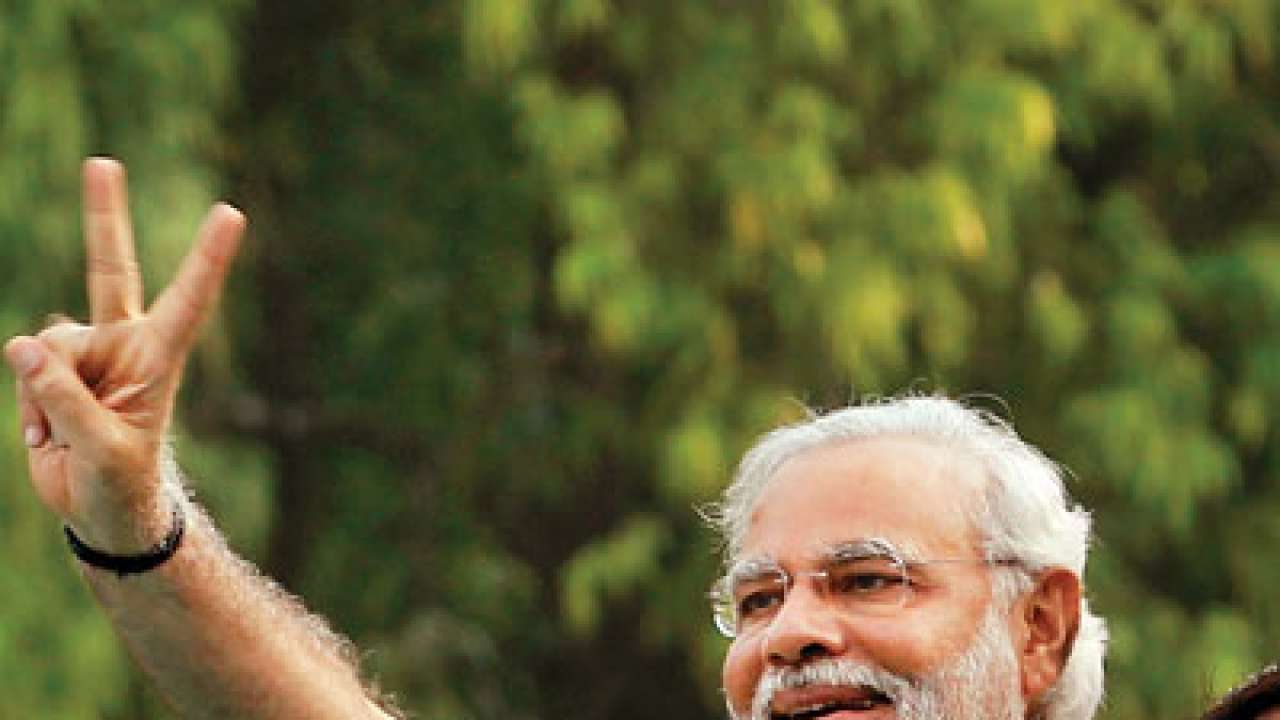
After Indira Gandhi won the 1980 elections with 353 seats and Rajiv Gandhi stormed home with 414 seats in 1984, the BJP's tally of 285 (as dna went to press) is the best ever by any single party. Still it would be facile to think that this watershed in Indian politics is more a collective triumph for the party than an endorsement of faith in one personality. This does not mean the BJP party cadre and leaders did not work. They did, like a whole robotised army.
The general, on the contrary, looked like a man. If you removed Modi from BJP's ornate, orange stages, pictured the rallies on the dusty plains of India without him, deleted Modi from the social media space, airbrushed him from the newspapers, what would this election be? Dull, in one word.
And without a frame of reference. To many people Modi is not quite cool. Given the circumstances, they'd rather associate the cool quotient with, say, Rahul Gandhi, if only because he stands in a haze; an indefinable smudge. Modi offers a sharp contrast. A point to agree or differ from. He has painstakingly carved for himself an image — he must be forgiven if in the process he once in a while turns himself into a hologram — of a man who wants to lift India from its appalling life values. In his victory rally in Vadodara last evening, he said his government would be aiming at inclusive growth and that he would be working for all.
That is a declaration best not taken lightly. No matter what the heartburn of those to whom he is not quite the intellectual pin-up boy, the miraculously organised Indian democracy, chaotic in just about every other respect, but never in the matter of their one-finger exercise, has thrown up an option. That option turns out to be Modi; not Rahul Gandhi, not Arvind Kejriwal. And, whether one is left of centre or right, one must respect it.
It's not clear as of now how the minorities, especially Muslims, voted. But one thing is certain. The Congress party no longer can bank on the minorities as a vote bank. The traditional vote base of that party has changed. To that extent, this means the hold of caste and community is weakening as a vote bank factor. Again, to a great extent the credit for that must go to Modi.
In speech after speech, he stressed the importance of development. Modi believes, like few people in India do, that prosperity will cut through identity politics. This is not a great sociological discovery. But Modi has crafted out of that belief a whole campaign which will now propel him into 7, Race Course. He has, in short, made a vision out of a word.
No country with any grand ideas about itself — and we have many — should be talking about basic dignities for so long. The difference between the two translates into delusion. For over six decades, political parties have been talking about electricity, road, water, food, clothing, house. Modi's campaign has been engineered to seize the present. Not the future. At Vadodara yesterday he said he would work for the people. That's not a promise so much as the statement of an ambition. And not an easy one at that. It takes great determination and tireless energies.
That India has voted Modi to power is a measure of both its hope and despair. It will take a true hero to honour that trust. Modi is not likely to take it lightly. What he wants from history is nothing short of acknowledgement as the architect of modern India. So, is Narenda Modi India? Yes, if this summer is anything to go by. There are more seasons to follow. If he falls short, or and the weather turns inclement, well, there is always your finger.